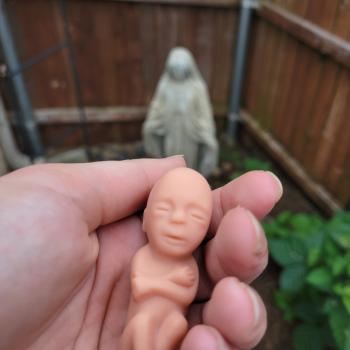How can we so readily define enough when it comes to filling up our gas tanks but we can't define it when it comes to filling up our lives? As far as stuff is concerned, when is enough enough?
Beautiful Things
Victoria Frances (not her full name) believes that she was born to shop. As the editor of a Manhattan-based interior design magazine, Frances feels some sort of moral obligation to know the latest trends in home décor. Every Saturday morning Frances hits what she calls the Four B's—"Barney's, Bendel's, Bergdorf's, and Bloomies." But her buying, as she readily admits, isn't completely job related. For more than a decade, Frances has spent thousands of dollars a week on stuff—clothes, jewelry, furniture, shoes, etc. Finding pleasure through her possessions is a key part of her sense of self-love. Frances commented, "I love to be surrounded by beautiful and exotic things."1
So how does Victoria Frances know when she has enough?
Consider Brittney and Gregg Peters, the Georgia couple who decided to sell most of their worldly possessions on eBay to cover their two kids' mounting medical expenses. After a Texas family offered them a $20,000 gift on the condition that the Peters family not sell off their possessions, Brittney and Gregg decided to downsize anyway. They chose to sell or give away most of what they had. The result was overwhelming. The Peters family was inundated with interview requests and received media coverage from all over the United States. Brittney Peters finds all the attention to be a little disheartening. She commented, "It says a lot [about] the materialistic society we live in that a family selling everything they own would make national news."
How and when will the Peters family know that they have enough?
Lessons from Agur
How do I know when I have enough? Can enough even be quantified? Shouldn't the real definition of enough be left up to each person to figure out? Don't we in the United States have a constitutional right to determine our own enough as we pursue life, liberty, and happiness? For some, enough
might be living in a mobile home park; for others, it might require a house in the Hamptons. Who's to say, and how can we really know?
If you're a Christian, you don't have to wonder. God knew that we would have a difficult time defining enough. We do well with recipes and car payments, when we know exactly how much sugar or money we need. But when it's up to us, when it comes to establishing a standard of living with enough, we have a hard time drawing the line.
So God gave us a standard. His Word offers us several clear and, I might add, simple definitions of enough. The bad news is that God's definition of enough and mine don't typically line up. I'm afraid that God's enough is much less than my enough.
Let's begin in Proverbs—the Old Testament book of wisdom. Written and/or edited mostly by Solomon, the Proverbs also contain a few sayings offered by relatively obscure biblical characters. One such character is Agur, the son of Jakeh. I'm sure his name rings a bell. I mean, he's right up there with Moses, David, and Paul. I'm sure you're thinking, "Oh yeah, Agur son of Jakeh. He's one of my favorite biblical writers!"
Thirty-three verses—that's Agur's entire contribution to the Old Testament. Not really what I'd call a biblical heavy hitter. But what Agur lacks in verbosity he makes up for in veracity. His words pack quite a punch, and it's the obscure Agur who offers us our first real biblical definition of enough. Here's what he wrote:
O God, I beg two favors from you; let me have them before I die. First, help me never to tell a lie. Second, give me neither poverty nor riches! Give me just enough to satisfy my needs. For if I grow rich, I may deny you and say, "Who is the Lord?" And if I am too poor, I may steal and thus insult God's holy name. (Prov. 30:7-9 NLT)
Since this isn't a book on truth telling, I'll skip Agur's first request. It's his second petition that speaks so poignantly to our topic of enough. Agur must have been a very wise man. He had the sense to pray not only that he wouldn't live in poverty—poverty is a terrible condition for any human to endure—but also that he wouldn't be rich. That's where he loses me. I can honestly confess that I've never prayed that I wouldn't be rich. I mean, how can you seriously not want to be rich? Isn't that the great American dream? Isn't that the secret of happiness? Doesn't money guarantee security and comfort? No, at least not according to Agur. And you can bet that as a king, he'd been around the block a few times. He'd probably had up-close looks at both poverty and riches.




